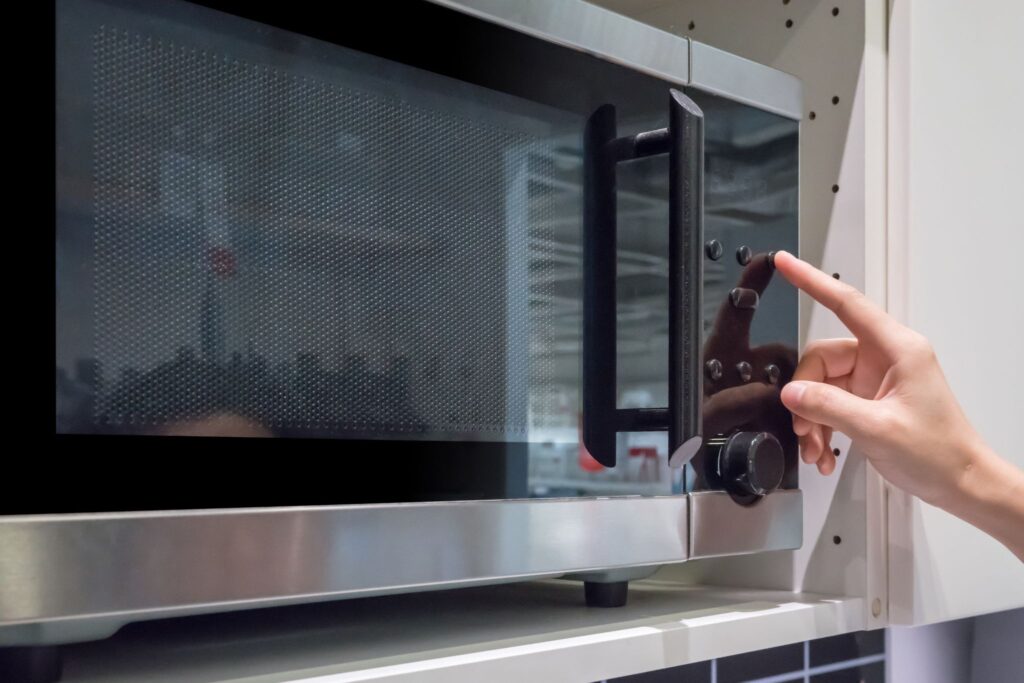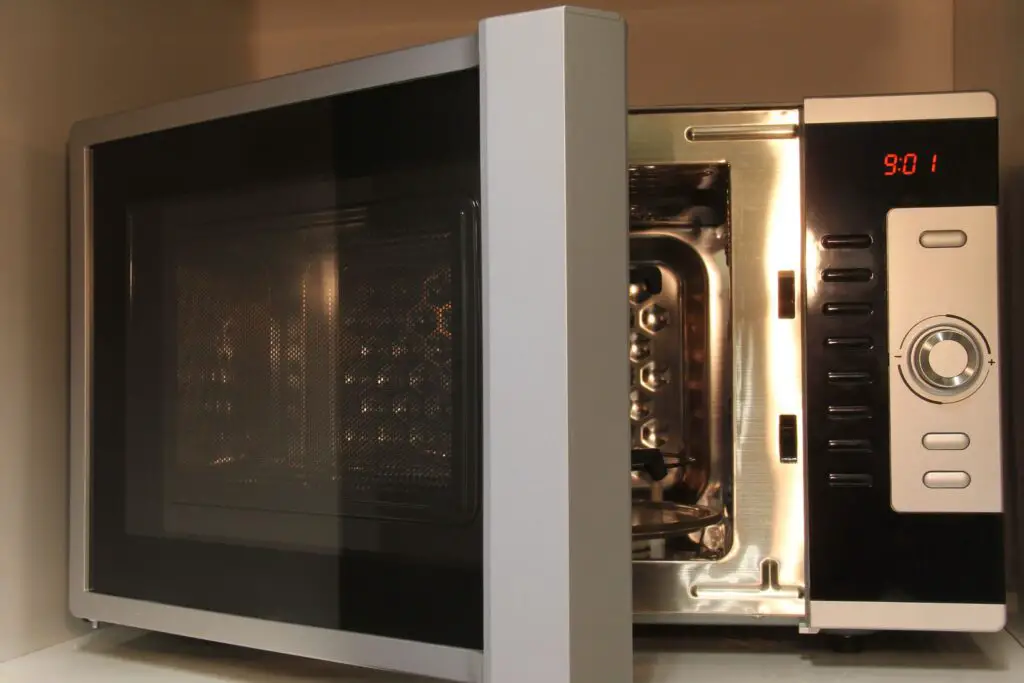Originally Created on: May 9, 2023 @ 9:17 am
Why do my lights dim when I use the microwave? Microwaves are an essential appliance in many households. Still, they can cause unexpected issues like flickering or dimming lights and more severe electrical problems if not used properly.
In the following sections, we’ll discuss the causes and solutions to these issues.
So, whether you’re experiencing electrical problems or want to prevent them from occurring in the future, keep reading to learn more.
You May Also Like: Can A Microwave Turn On With The Door Open? [The ULTIMATE Truth + 6 Tips]
Table of Content
Why Do My Lights Dim When I Use The Microwave?
If you’ve noticed that your lights flicker or dim when you use your microwave, you may wonder why this is happening. The answer lies in the way microwaves work and how they draw power.
Microwaves use a significant amount of electricity; when they’re in use, they draw a lot of energy from your electrical system. This sudden surge of power can cause your lights to dim momentarily, but it’s usually nothing to worry about.
Here are some factors that can cause your lights to dim when you use your microwave:
- Your microwave is on the same circuit as your lights: If your microwave and lights are on the same course, the microwave’s draw of power can cause the voltage to drop temporarily, causing your lights to dim.
- Electrical wiring issues: If your electrical system has wiring issues or is outdated, it may not be able to handle the load placed on it by your microwave, causing your lights to dim or flicker.
- Overloaded circuit: If you have too many appliances or electronics connected to the same course, the electrical load can be too much for your system to handle, causing your lights to dim.
Overall, dimming your lights when you use your microwave is typically nothing to worry about.
However, if you notice persistent flickering or other electrical issues, it’s best to consult a licensed electrician to ensure your electrical system is working correctly.
Why Are Microwave Lights So Dim?

If you’ve ever looked inside your microwave while running, you may have noticed dim light inside. This is because microwave lights are designed to serve a specific purpose and don’t need to be exceptionally bright.
Here are some reasons why microwave lights are typically dim:
- Safety: Microwave lights are typically dim to prevent the bulb from getting too hot and potentially causing a fire.
- Energy efficiency: A bright light inside a microwave would draw more power and make the appliance less energy-efficient.
- Design: The primary purpose of the light inside a microwave is to help you see what you’re cooking, so it doesn’t need to be exceptionally bright.
While the dimness of microwave lights may seem odd, it’s intentional and serves a specific purpose.
Why Do My Lights Flicker When I Turn On Microwave?

In addition to dimming, you may notice that your lights flicker when you turn on your microwave. This can be more concerning than dimming, as it may indicate an issue with your electrical system.
Here are some potential reasons why your lights flicker when you turn on your microwave:
- Voltage fluctuations: The sudden draw of power from your microwave can cause voltage fluctuations that affect your lighting and other electronics.
- Overloaded circuit: If your microwave is on the same circuit as other appliances or electronics, the combined load may be too much for your electrical system to handle, causing flickering lights.
- Faulty wiring: Electrical wiring issues, such as loose connections or damaged wiring, can cause flickering lights when your microwave is in use.
If you notice persistent flickering or other electrical issues, it’s best to consult a licensed electrician to ensure your electrical system is working correctly and safely.
Can Microwave Cause Electrical Problems?

While microwaves are generally safe, they can cause electrical problems under certain circumstances.
Here are some potential issues to be aware of:
- Overloading circuits: If your microwave is on the same circuit as other appliances or electronics, the combined load may be too much for your electrical system to handle, causing circuit breakers to trip or other electrical problems.
- Faulty wiring: Electrical wiring issues, such as loose connections or damaged wiring, can be aggravated by the high power draw of a microwave, potentially causing electrical problems.
- Power surges: If there are sudden power surges or fluctuations in your electrical system, they can cause damage to your microwave and other appliances.
- Electrical interference: Microwaves can interfere with other electronic devices in your home, causing static or signal disruptions.
To prevent electrical problems caused by your microwave, it’s essential to follow these safety tips:
- Use a dedicated circuit: Your microwave should be on its proper course to prevent overloading and other electrical issues.
- Keep other electronics away: To avoid interference, keep other electronic devices away from your microwave while it’s in use.
- Address wiring issues: If you suspect wiring issues in your home, it’s essential to have them addressed by a licensed electrician to ensure the safety of your electrical system.
Conclusion
Microwaves are essential in many homes, but they can cause some electrical issues under certain circumstances. With proper use and maintenance, microwaves can be a safe and convenient addition to your kitchen.
Dimming or flickering lights are typically nothing to worry about, but a licensed electrician should address persistent electrical problems to ensure the safety of your home’s electrical system.
Additionally, understanding why microwave lights are typically dim and following safety tips can help prevent electrical problems caused by microwaves.

![Why Do My Lights Dim When I Use The Microwave [BEST Answer +4 CAUSES]](https://mykitchenapex.com/wp-content/uploads/2023/05/Why-Do-My-Lights-Dim-When-I-Use-The-Microwave-BEST-Answer-4-CAUSES-2.jpg)